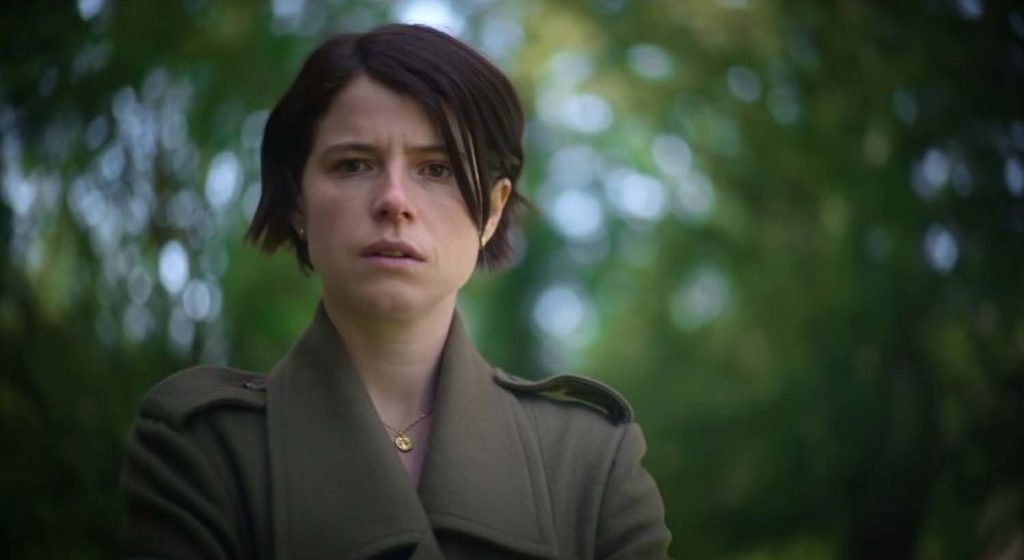Rating: ***
Men. They are just not for everyone, are they? And what about this new folk horror film directed by a man named Alex Garland? Writer of The Beach, 28 Days Later and director of Ex Machina and Annihilation, Garland has a growing reputation for making well-crafted genre films with a sharp cerebral edge.
Men stars Jessie Buckley as Harper Marlowe, a newly minted widow who retreats to a small town in the English countryside to recover from the traumatic circumstances of her husband’s sudden (yet slow-mo) demise.
As Harper helpfully flashes back on her former life, we learn her husband was not a glowing exemplar of the male gender and she now has much pain and perhaps even guilt to process. On her arrival she is checked into a large yet still claustrophobic manor house owned by Geoffrey, a local landlord who is played by Rory Kinnear with bumbly and unsettling glee.
While she strolls around her bucolic surrounds Harper encounters a series of local males who all share an eerie resemblance to one another, each more misogynistically menacing than the last. There is also a very bald, very nude Englishman who skulks creepily about the background of many shots, which I’m sure is horror enough for many viewers.
Upon reporting her concerns to the local constabulary our heroine soon realises just how alone she, as the only female in the film, is in a world of men. As night falls, things turn very spooky very quickly and Harper’s encounters with strange townsfolk become a lot stranger and a lot, uh, folkier. This is a film that owes much in tone to Brit horror stalwarts like The Wicker Man, Straw Dogs, even The League of Gentlemen comedy series.
Men is beautifully shot and does very well to construct a growing dread that promises a satisfyingly cathartic resolution. Unfortunately, it is the clumsy final act where the film fails not only its heroine but perhaps women everywhere.
As a series of toxic masculine horrors quite literally unfold before our eyes, Garland comes up short with his final statement on what it means to be a woman forced to exist in a world of misogyny and violence.
The ending itself is obtuse to the point of absurdity and it feels that any person who has ever dabbled in victim blaming might come away from the film feeling acknowledged, if not outright vindicated.
None of this is at all helped by the fact that despite being a fine actor Jessie Buckley’s character of Marlowe is not imbued with much personality, apart from being as doggedly resilient as she is stabby.
This all amounts to a real shame because the abuse of women, both on screen and off, deserves a withering condemnation that should have been made with much more piercing bite.




